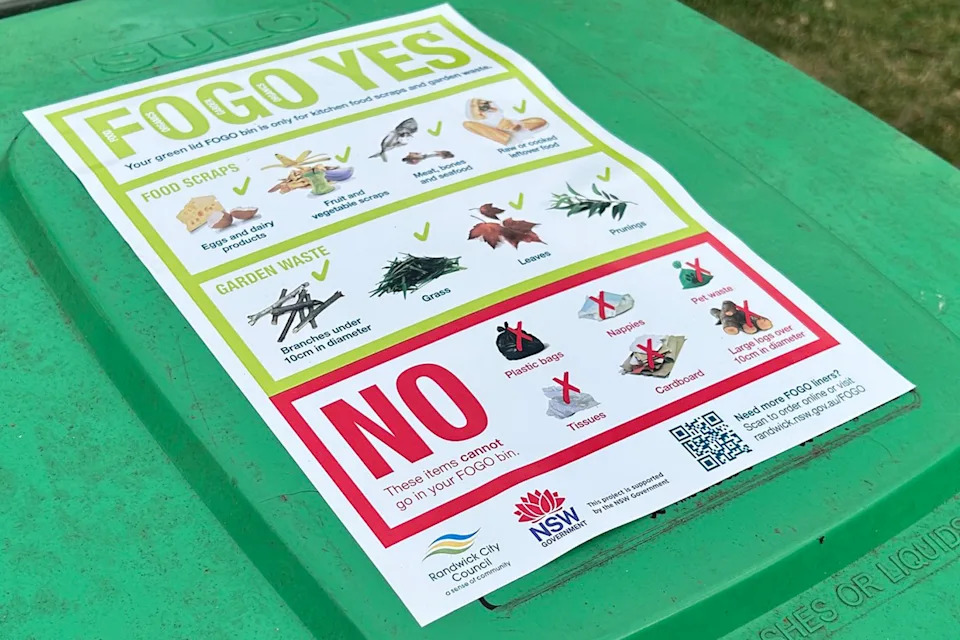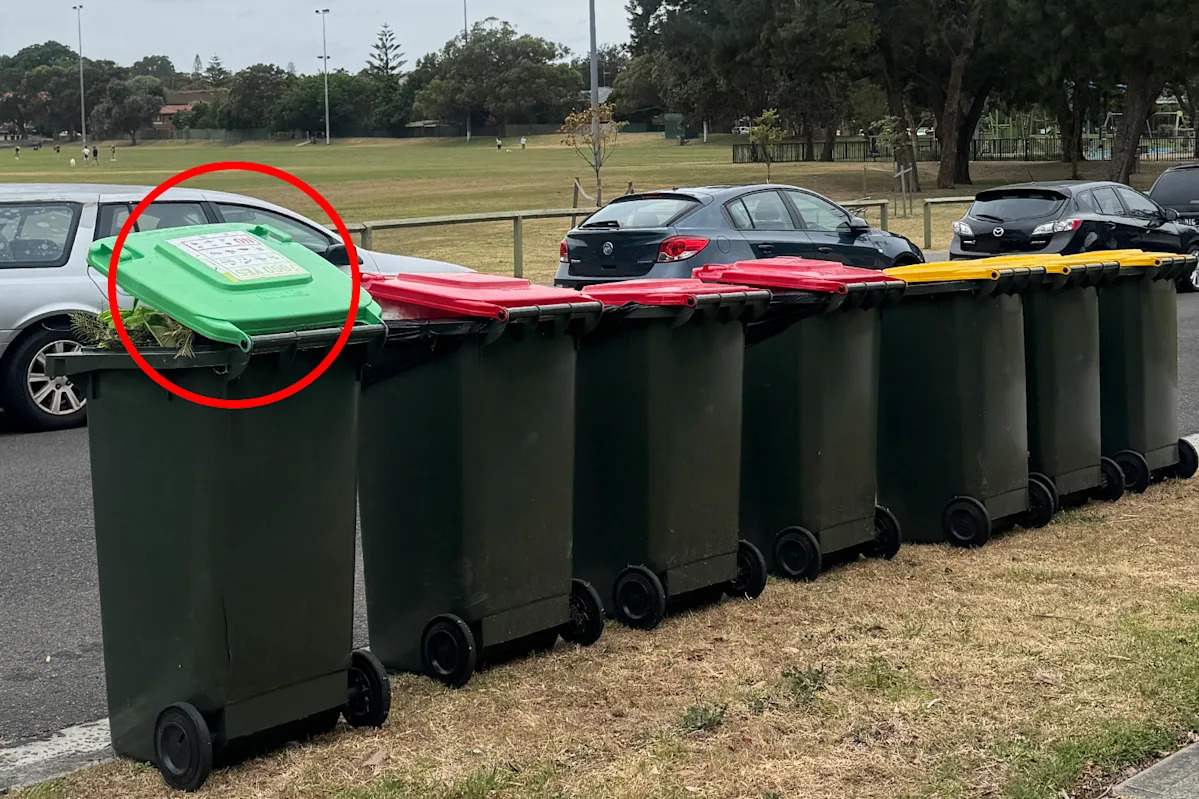Love them or hate them, the presence of Food Organics and Garden Organics (FOGO) green bins is a growing reality for most Australians as authorities work to reduce the impact of an ongoing growing waste crisis.
Some residents have previously complained that food scraps have left their bins “swarming with maggots” and “covered in flies”. Rollouts across Sydney in particular had people describing the initiative as a “big mistake”, with many simply giving up on even trying to correctly filter their waste.
But NSW Environment Minister Penny Sharpe yesterday said it’s a “race against the clock” to solve a waste crisis, with landfill tipped to run out of space in just five years. Without action, Greater Sydney is on track to run out of landfill space by 2030, with many regional landfills also struggling despite recycling investment.
And while it can often feel complicated to decipher what can be put into these bins ahead of collection day, rangers in a major council area have been “walking the streets” with new bin stickers to remind residents of new rules about what goes in the bins.
New stickers will soon appear on all green bins across Randwick City Council area in Sydney’s east, detailing what can and cannot go into the bins — with paper products, including compostable cutlery, now ruled out.
Mayor Dylan Parker told Yahoo News the rules have changed since the authority introduced the scheme in 2021, in an effort to reduce food waste and landfill volumes.
“Randwick Council is in the process of communicating these changes — including updating signage on the tens of thousands of green-lid FOGO bins in our LGA — to ensure our community members continue to do the right thing,” he said.
“We will also soon provide residents with new signage for their FOGO kitchen caddies.”
Do you have a problem with your green bin? Contact courtney.greatrex@yahooinc.com

The new sticker explains the new rules and the items which cannot go into the green FOGO bin. Source: Randwick City Council
RELATED: New Aussie invention set to change the way sushi is consumed
What can and cannot go in my FOGO bin?
Despite the new stickers, a spokesperson from the NSW Environment Protection Authority (EPA) told Yahoo News that the rules are not new, and actually came into effect in July 2022.
“Only food and garden organics, and certified compostable liners, should go in the FOGO bin,” the spokesperson said.
It followed research whihc highlighted the need for tighter controls on what does and doesn’t go in FOGO bins ahead of a statewide rollout.
“It’s important to keep contaminants out of the FOGO stream so this waste can be turned into high-quality compost that is safe for use in parks, gardens and farms, and doesn’t cause harm to people or the environment,” the spokesperson said.
“We have strict standards for recycling streams because we want to make sure new products don’t create tomorrow’s problems.
Contamination in FOGO bins can increase processing costs for councils and composting facilities. Reducing it helps keep expenses down and supports a clean, reliable composting industry.
“The EPA is working closely with councils to ensure people are getting consistent and accurate messaging about correct FOGO bin use.”
The EPA has issued the following guidelines on what can and cannot go in the FOGO bin.
Items that can go in household FOGO bins are:
Food scraps (including meat, bones, prawn shells, bread/cake – anything you actually consume)
Certified compostable plastic kitchen caddy liners
Items that should not go in FOGO bins include:
Tea bags that contain plastic
Pizza boxes, or other compostable food packaging
Plastics used to wrap food
Pet waste and pet waste bags
Cardboard, baking paper, paper towel and tissues
FOGO mandates to solve major landfill crisis
Australia generates a massive amount of waste, with approximately 75 million tonnes produced per year.
In NSW, waste disposal remains a significant issue, with landfill sites struggling to cope with increasing volumes, so much so that some areas are expected to have their landfill sites hit capacity by 2030.
By 2030, local councils across NSW are mandated to collect and transport FOGO waste from households weekly. With Randwick well ahead of the curve, many more are yet to commit to the program.
One result of the mandate is that general waste red bins will be moved to fortnightly collection rather than weekly, an issue that many residents take umbrage with.
Mayor Parker said ongoing enthusiasm for the scheme has meant more than 200 tonnes of food and garden waste are diverted from landfill every week.
“Since the program began in 2021, we’ve diverted more than 60,000 tonnes — that’s more than the weight of the Sydney Harbour Bridge,” he said.
“We’re grateful to all the residents who continue to make FOGO a success, and for helping to make our community cleaner and more sustainable.”
Do you have a story tip? Email: newsroomau@yahoonews.com.
You can also follow us on Facebook, Instagram, TikTok, Twitter and YouTube.


